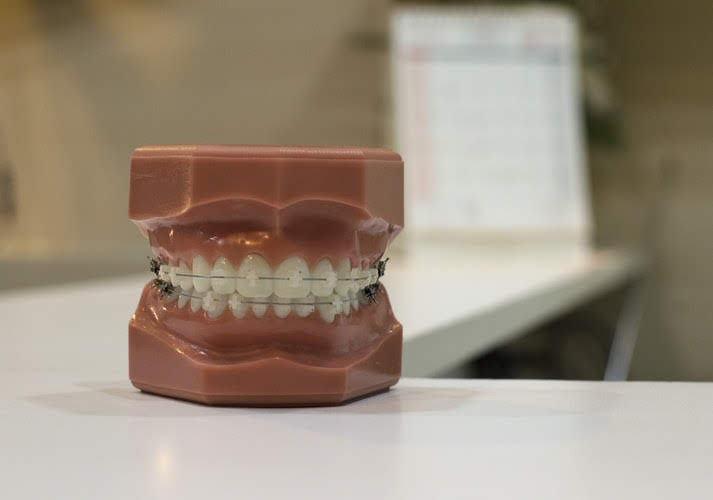Calling Employee “Beautiful” and Telling Her to Smile More Constituted Discrimination Based on Sex, Human Rights Tribunal Rules
 " alt="Calling Employee “Beautiful” and Telling Her to Smile More Constituted Discrimination Based on Sex, Human Rights Tribunal Rules">
" alt="Calling Employee “Beautiful” and Telling Her to Smile More Constituted Discrimination Based on Sex, Human Rights Tribunal Rules">
Written on behalf of Peter McSherry
In a recent British Columbia case, the Human Rights Tribunal ruled that an employee had been discriminated against based on sex after she was called “beautiful girl” or “beautiful lady” and told to smile more.
Employee Files Discrimination Complaint
The employee applied for a position as a sales associate for the employer in 2016. At the time, she was living with her parents and was 28 years old.
The employer company sells instruments for analytical chemistry and medical use. It was founded by a father and managed by his two daughters.
During her second interview for the position, the employee claimed that the father asked most of the questions and many of them were unrelated to her job. She claimed that he asked her about her “marital status” and plans to have children. Additionally, in her complaint form, the employee alleged that the father made comments about her appearance and said that she was not being hired for her skills or competence, while he gestured towards her face.
The employee was hired following the second interview and began work on January 3, 2017.
The employee claimed that the father was “volatile” and difficult to work with. Additionally, she claimed that the father frequently demeaned her in the workplace by commenting on her appearance. Among her allegations, the employee claimed that the father:
- Called her “beautiful girl” or “beautiful lady” instead of using her name;
- Told her to smile more;
- Suggested she should wear a bikini to a tradeshow; and
- Told her overtly that she had been hired for her appearance and not her skills.
The employee claimed this behaviour continued for the first several months of her employment.
When the employee complained about the father’s conduct to her supervisor, who was also the father’s daughter, the daughter arranged a meeting with the employee and the father. At that meeting, the father accused the employee of defaming him and asked her to sign a statement affirming that he had not physically assaulted her. The morning after the meeting, the employee was fired.
The employee filed a human rights complaint. She alleged that the father’s questions during the interview, his comments about her appearance, and the termination of her employment were discrimination in employment based on her sex, in violation of s. 13 of the Human Rights Code (the “Code”). In addition, she alleged that her termination was retaliation for the prospect that she might file a human rights complaint, in violation of s. 43 of the Code.
Tribunal Finds in Favour of Employee
After reviewing the evidence, the Tribunal first stated that it was not convinced that the father had discriminated against the employee during her job interview.
The Tribunal did find that the father had made some comments to the employee about her appearance, namely calling her “beautiful girl” or “beautiful lady” and commenting that she should smile more. However, it did not accept that such comments occurred as frequently as the employee had claimed, nor did it accept that the father had made the bikini comment, or that he told her overtly that she was not hired for her education or technical knowledge but for her appearance.
The court then stated:
“Section 13 of the Code protects the [employee] from any adverse treatment or impact in her employment that is connected to her sex… In this analysis, it is not [the father]’s intentions which are relevant; rather the focus is on the effect of his conduct on the [employee]… Understood in context, I am satisfied that [the father]’s comments had the effect of discriminating against the [employee] based on her sex.
I begin by situating [the father]’s comments among the subtle forces which continue to reinforce, perpetuate, and exacerbate the disadvantage faced by many women in their workplaces.
Women have long fought for the right to be evaluated on their merits. One persistent barrier to that goal is the conflation of a woman’s worth with her appearance. Society continues to impose expectations on women to be pleasing to the people around them, particularly men. Their appearance and outward manner are important components of that. While telling a woman to smile may feel like harmless banter, it imposes a burden on her to please people in a way that is disconnected from the tasks of the job, the skills she brings to it. Calling her “beautiful” or commenting on her appearance reinforces the message that her value is in how she is seen by others and not in the strength of her ideas, her skills, and her contributions to the work. And finally, calling a grown woman a “girl” in the context of her employment infantilizes and patronizes her. It signals that she is not an adult worthy of being taken seriously in their profession. Most often, these are not burdens or messages shared with men. The impact of this type of behaviour is to subtly reinforce gendered power hierarchies in a workplace and, in doing so, to deny women equal access to that space.”
The Tribunal concluded that the father’s comments contributed to the employee’s feelings of degradation. It therefore held that the father had discriminated against the employee in her employment based on sex.
Finally, the Tribunal held that the employee was terminated because of her complaint about sexual harassment and, in doing so, the employer had violated ss. 13 and 43 of the Code.
In the result, the Tribunal awarded the employee compensation for lost wages and expenses, as well as $20,000 as compensation for injury to her dignity, feelings, and self-respect. Additionally, the employer was ordered to develop and implement a human rights policy.
Get Help
If you feel that your rights have been violated, seeking the advice of an experienced and informed employment lawyer can help you understand your rights and your options to remedy the situation.
I have extensive experience and knowledge in handling cases on behalf of employees in a variety of industries. If you have been the victim of harassment and discrimination, I can help you evaluate your options and pursue the resolution that can best serve your interests and compensate for the pain and damages you have suffered.
At Peter A. McSherry Law Office in Guelph, I have represented clients in all areas of employment since being called to the Ontario Bar in 1997. When you work with me, you will meet and discuss your case only with me. I provide each of my clients with compassionate care, attentive service and the efficient resolution of legal issues. Contact me today to schedule an initial consultation by calling my office at 519-821-5465 or by e-mailing me. Harassment and discrimination cases are not to be taken lightly. Your rights deserve protection, and you deserve to work in a non-hostile work environment.




